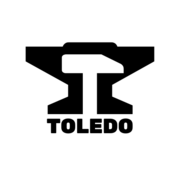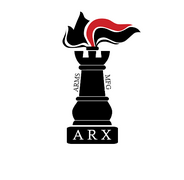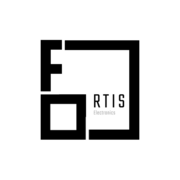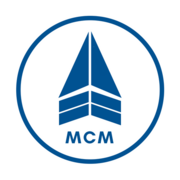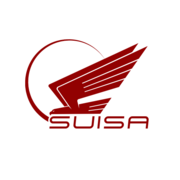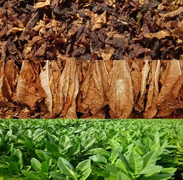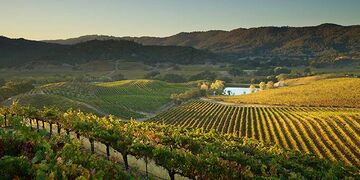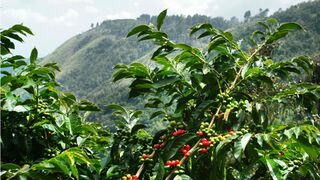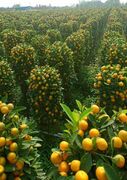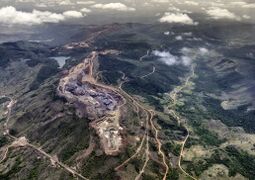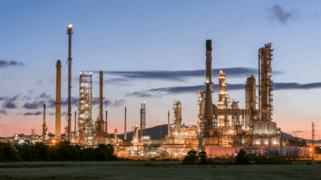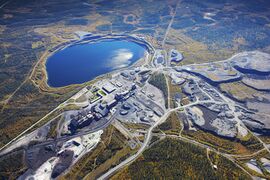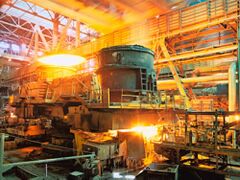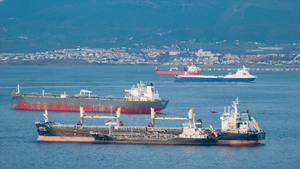Economy of Iverica: Difference between revisions
(Created page with "{{Infobox economy | country = Iverica | image = File:Altaria_Commercial_District.jpg | image_size = 200px | caption = Magaté Commercial District in Porto Altaria i...") |
mNo edit summary |
||
| Line 185: | Line 185: | ||
Various finished goods are also exported. Notable goods include: original equipment like springs, pistons, fasteners, automotive parts, batteries, power grid components, and many other mechanical or electric goods; industrial equipment like heavy machinery, power-units, power tools, safety equipment, industrial ventialtion units, climate control systems, smelting equipment, casting equipment, steel-rolling equipment, chemical refining equipment, maritime engineering equipment, shipboard equipment and many others; other finished goods like automobiles, trains, watercraft, and aircraft; and demerit goods like tobacco, beer, wine, and junk food. | Various finished goods are also exported. Notable goods include: original equipment like springs, pistons, fasteners, automotive parts, batteries, power grid components, and many other mechanical or electric goods; industrial equipment like heavy machinery, power-units, power tools, safety equipment, industrial ventialtion units, climate control systems, smelting equipment, casting equipment, steel-rolling equipment, chemical refining equipment, maritime engineering equipment, shipboard equipment and many others; other finished goods like automobiles, trains, watercraft, and aircraft; and demerit goods like tobacco, beer, wine, and junk food. | ||
{{Eurth}} | |||
[[Category:Iverica]] | |||
Revision as of 14:48, 24 January 2024
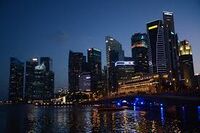 Magaté Commercial District in Porto Altaria is the leading financial center in the country by contribution to its metropolitan GDP. | |
| Currency | Iverican Velle (IVE, Ꝟ) |
|---|---|
| Calendar year | |
Trade organisations | Federated Commonwealth Bank and ATARA |
| Statistics | |
| GDP | |
GDP growth |
|
GDP per capita | |
GDP by sector |
|
| |
Population below poverty line | |
Labour force | decrease 00.0% employment rate |
Labour force by occupation | Agriculture: 00% Industry: 00% Services: 00% (2023 est.) |
| Unemployment | |
Average gross salary | $XX,XXX monthly (2023) |
| $XX,XXX monthly (2023) | |
| External | |
| Exports | |
Export goods | EXPORTGOODS |
Main export partners |
|
| Imports | |
Import goods | IMPORTGOODS |
Main import partners |
|
FDI stock | |
Gross external debt | |
| Public finances | |
| $XXX million (2023) +0.0% of GDP (2023) | |
| Revenues | 00.0% of GDP |
| Expenses | 00.0% of GDP |
| E&P: AAA | |
Foreign reserves | $XXX billion (2023) |
This article is incomplete because it is pending further input from participants, or it is a work-in-progress by one author. Please comment on this article's talk page to share your input, comments and questions. Note: To contribute to this article, you may need to seek help from the author(s) of this page. |
The economy of the Republic of Iverica is a developed mixed economy with a reliance on original equipment manufacturing, the manufacturing of building materials, and the manufacturing of finished industrial equipment. Additionally, industries like software development, finance, raw materials extraction, agriculture, and tourism make up a large share of the economic activities. It is the wurld's seventh largest economy by nominal GDP and also has the wurld's seventh-highest per capita GDP (nominal) and the eighth-highest per capita GDP (PPP) in 2018. Iverica has a highly diversified, wurld-leading industrial sector. It is also a high-technology innovator with the largest industrial output in Argis.
History
SOMETHINGSOMETHING OLD DUSTY VIRGINS COLONIALISM COLONIALISM BORING OP FECAL MATTER BORINGTARIFFTARIFF BALANCEOFTRADE RESOURCE EXPLOITATION ETC.
Macroeconomics
Gross Domestic Product
Purchasing Power
Balance of Trade
Currency
The Iverican Velle is the currency most used in transactions between the Argic-Alharun Iberic Diaspora and is the Association of Iberic Nations foremost reserve currency, backed by its science and technology, its military, the full faith of the Iverican government to reimburse its debts, and its central role in a range of regional and international institutions since the Second Argic War. Argic-Alharun Iberic Diaspora countries are also known to use the Iverican Velle as an accepted currency.
Other Statistics
Employment, Income, and Wealth
Employment
The Iverican economy experienced a serious economic crisis during the 1997 Recessions which turned into a larger scale depression lasting from from December 1996 – June 1999. However, real GDP regained its pre-crisis (Q4 1996) peak by 2003, household net worth by Q3 2004, non-agricultural payroll jobs by May 2005, and the unemployment rate by September 2005. Each of these variables continued into post-depression record territory following those dates. Income inequality ranked one of the wurld's highest in 2017 and ranks among the highest in income inequality compared to other Tricontinental nations.
Income
Ivericans have the second-highest average household and employee income among Argic nations, though this is extensively offset by its disparity with the generally below average standard of Iverican rural incomes.
Wealth
Notable Markets and Entities
Major contributors to the nation's economy include the domestic reliance and export of its extracted metals and minerals; a well-developed infrastructure for transport and mass production; an ideal cash-crop climate for both agriculture commodities and luxury goods; and an overall high-productivity across manufacturing and service sectors. The Republic of Iverica is also the second largest producer of aluminium and is among wurld's largest producers of citrus fruit, nuts, and pipe tobacco. Iverica not only has a large internal market for goods but also has a large stake in industrial consulting, industrial defence engineering, maritime infrastructure consulting, maritime engineering, telecommunications and information technology services. Iverica has a total trade value of $630 billion as of 2020.
The Republic of Iverica has one of the wurld's largest and most influential financial markets. The Manille, Altaria, and Intreimor Exchanges are one of Argis' largest by market capitalisation. Foreign investments made in the Republic total almost $299 billion, while Iverican investments in foreign countries total to over $330 billion. Consumer spending comprised 38% of the Iverican economy in 2018. The Republic is one of the top-performing economies in studies such as the Ease of Doing Business Index, the Global Competitiveness Report, and others.
The manufacturing sector is led by the Toledo Group of Companies, leaders in the automotive industry, consumer electronics industry, arms manufacturing industry, and other heavy industries. The agricultural sector is led by cash crop industries that produce grapes, almonds, oranges, and coffee.
Iverica's Economy is also stimulated by the abundance of Free Economic Zones established with ![]() Prymont,
Prymont, ![]() Variota, and
Variota, and ![]() Andalla. Foreign Ownership laws vary per economic zones and are typically negotiated between the Public-Private Partnership Office (P3O). Currently, the Altarian subdivisions of FEZs maintain the lowest average ratio of foreign-domestic ownership at 78% Foreign to 22% Domestic. Manille subdivisions maintain the second lowest average at 65%-35% and Porto L'Norte maintains the closest to the national average of 60%-40%.
Andalla. Foreign Ownership laws vary per economic zones and are typically negotiated between the Public-Private Partnership Office (P3O). Currently, the Altarian subdivisions of FEZs maintain the lowest average ratio of foreign-domestic ownership at 78% Foreign to 22% Domestic. Manille subdivisions maintain the second lowest average at 65%-35% and Porto L'Norte maintains the closest to the national average of 60%-40%.
The Iverican economy can be divided generally into four sectors: Manufacturing, Services, the Consumer base, and Agriculture.
While Iverican export profits rely largely on exports of manufacturing original equipment (industrial components), heavy industrial equipment (finished industrial goods), and cash crops. The sizeable population of middle-class workers also provides an excellent base for a service-oriented and consumer-driven economy.
Government Influence
The state's function in the economy is largely restricted to the regulation of harmful contraband, the enforcing of the necessary business laws, and occasionally, to stimulate certain industries with the few state-run businesses.
By Sector
Energy Sector
Approximately 60% of Iverica's energy comes from geothermal power plants harnessing the magma chambers in Nou Stille, Léon, and Argon. 30% comes from inland hydroelectric power plants, and 10% from wind turbines, solar panels and other forms of energy production.
Though with recent innovations such as the completion of an aseismic reactor in León Nuclear Power Plant, Iverica hopes to replace many of its ageing facilities with nuclear alternatives by 2020.
Industrials Sector
Led at a staggering majority by Toledo Group partners Toledo Heavy Industries and ARX Arms Manufacturing Co., capital goods industries are mostly split between exports of original equipment, heavy equipment, arms manufacturing, and exports of finished products from holdings leased to foreign manufacturers.
Multi-nationals like BioCare and PharmaCiudar also contribute to a small but recently growing pharmaceutical manufacturing industry. Vaccines, supplements, and various medications.
Consumer Services Sector
Majority of services are in telecommunications, hospitality, and information technology support such as outsourced software development. Consortiums such as Fortis Electronics share the Information Technology and telecom markets with a growing number of independent startups based off of the numerous commercial and international business zones in metropolitan areas. On the other hand, hospitality services—also a large portion of the sector, are mostly oriented towards restauranteur business, tour services, and hoteliers.
Another large contributor to the service sector are freight companies like IberiCarril (railways and overland), Manille Freight Lines Co. (maritime), and PeninsulAire Express (aerial). Iverican freight infrastructure exists to support services in the Tricontinental region; occidental and oriental Europa; Gallambrian and Salvian Marenesia, and parts of coastal Aurelia.
Iverica also maintains a nationalised icebreaking service together with the United States of Prymont. As a large service employing tens of thousands of people, it is critical both for domestic employment and for continued trade with Polar Argis.
Consumer Discretionary
Iverica depends heavily on domestic and foreign consumption. Chiefly, cash-crops, edible commodities, and consumer electronics together make up 80% of foreign consumption revenue and 68% domestically. As of 2018, Fortis Electronics and its constituent companies contribute more than $100 billion in foreign consumption revenue.
Consumer Staples Sector
Other key contributors to Iverican exports include cash crop, commodity foodstuffs, and other finished foodstuffs exported to Argic nations like Prymont, Girkmand, and The Hellenic Rus. Much of southern rural Iverica is dotted with plantations hiring a great number of employees for the production of such resources. The significant manpower requirement and difficulty in automating the cultivation of some of these cash crops ensures that a stable demand for labour in the agricultural sector is consistent and largely unaffected by Iverica's recent bids for more automated production.
Financials Sector
Iverican national and private banking institutions participate in foreign exchange, investment banking, and the trading of publicly-listed equities in both foreign and domestic markets. Due to a national effort to maintain clean econometric data collection, financial decisions enjoy a higher degree of forecast and nowcast accuracy than average. In addition, the introduction of small-scale internet trading applications have made it easier or private citizens and small businesses to participate in securities and commodities exchange. Thus, Iverica's financial climate is highly diverse with a larger percentage of non-corporate traders participating than in most Argic states.
By Notable Companies
List of Notable Iverican Companies
Natural Resources and Produce
Iverica has abundant reserves of bauxite, lead, zinc, copper, tin, gypsum, nickel, and iron. Additional lesser deposits include magnesite, gold, tungsten, and uranium. Most deposits are located over the former natural islands that once made up an archipelago before the formation of the peninsula by a series of volcanic eruptions. The Peninsula has few oil and natural gas veins, most of the little crude oil is located in the northern coasts of the peninsula, in the Argic Ocean.
Iverica's largest cash crop industries are led by grapes, almonds, oranges, and coffee. Significant contributions include tobacco, olives, and tomatoes.
Foreign Trade
Its largest trading partners are (listed according to net import and export values): the states of the Federated Commonwealth of New Iberium, Prymont, Andalla, Variota, Prymontian Rus, Tagmatium, Gallambria, Salvia, Saint Francoisbourg, the Sunset Sea Islands, and Girkmand.
Foreign trade of the Republic comprises the international imports and exports of Iverica, one of Eurth's most significant economic markets. The country is among the top global importers and exporters.
The regulation of trade is constitutionally vested in the Camrá Nasional. After the 1950 reforms, which included the renewed opening of the Peninsula proper to wurld trade, the country began to emerge as a significant global trade policy-maker. Currently maintaining several significant bilateral trade agreements with Prymont, Gallambria, Tagmatium, Salvia, Variota, Andalla, and Girkmand. At a larger scale, Iverica also maintains significant influence in ATARA with a permanent seat in the association's Presidium.
Iverica's current policy with foreign trade and exchange is often characterised as protectionist, although it is worth noting that limited government control of Iverican companies means that this policy seldom dictates market activity past a degree of taxation and harmful substance regulation. Officially, foreign trade still requires a measure of oversight from the Ministry of Trade & Commerce, but the few restrictions that exist are enforced purely in the interest of national security.
The country has trade relations with many other countries. Within that, the trade within the Tricontinental Region is predominant. To fulfil the demands of the industrial sector, the country has to import mineral oil from Tagmatium and rare earth commodities on a large scale from the Prymontian Rus. Textiles, tea, toys, mineral oil, lubricants, lead, lumber, mineral crystals, and many more items are imported. The country's export list of commodities includes food grains like wheat, corn, rice, and soybean; fruit like grapes, oranges, and olives; nuts like almonds and chestnuts; berries like juniper and coffee; and metals like aluminium, lead, zinc, copper, tin, gypsum, nickel, and iron.
Various finished goods are also exported. Notable goods include: original equipment like springs, pistons, fasteners, automotive parts, batteries, power grid components, and many other mechanical or electric goods; industrial equipment like heavy machinery, power-units, power tools, safety equipment, industrial ventialtion units, climate control systems, smelting equipment, casting equipment, steel-rolling equipment, chemical refining equipment, maritime engineering equipment, shipboard equipment and many others; other finished goods like automobiles, trains, watercraft, and aircraft; and demerit goods like tobacco, beer, wine, and junk food.

